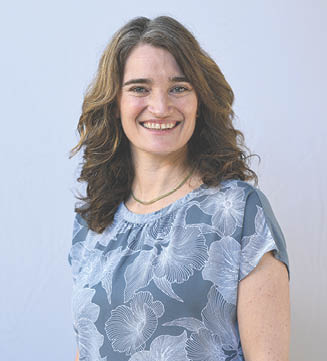Pins and Posts: October 2023

Tips for Bringing AI into schools
Together, NASSP and four other major education groups have published a guide for school leaders on artificial intelligence (AI) in schools. Because AI is so new, “Bringing AI to School: Tips for School Leaders” includes some background on what AI is—and is not—and features examples of questions leaders should be asking. It offers five strategies that are critical for promoting a successful AI culture in any school, along with examples and resources for each strategy:
- Encourage exploration
- Provide training
- Spotlight success
- Host conversations
- Set the right conditions
Read the guide at bit.ly/44tKwt4.

Reducing the wage Gap for FEMALE Teachers
Public schools heavily rely on women’s labor yet pay female teachers less. The Brookings Institution attempts to explain why in a recent policy brief. Male teachers earn $2,200 more than females with similar qualifications and who teach in similar contexts, with supplemental school-based compensation (such as extra duty pay) playing a major role. The brief’s authors examine a number of policies that might reduce the wage gap and conclude that “increasing pay transparency and including supplemental pay in collective bargaining agreements have the most potential to achieve pay equality.” In addition, they write that bans on salary history and participatory budgeting look promising and should be explored more. Read the brief at bit.ly/3OjDSAg.

NHS Chapter Brings Together Students and Senior Citizens
When three NHS students at Canterbury School in Fort Myers, FL, needed to fulfill their chapter’s service requirements, they turned to their own experiences with their grandparents for inspiration. The result? A project where they help senior citizens struggling with technology. The club’s members do not claim to be tech experts but say that with the help of Google searches, they can do everything from fixing printers to setting up Wi-Fi routers. “Obviously, we all know a good amount about technology,” says Aaron Smolyar, “but we have also learned a lot by doing the club.” But the project is about more than technology. “The relationships we make with these seniors are extremely valuable; they teach us a ton of things,” says Christian Laquis. “It is obvious some of them don’t see their families very often,” says Derrick Hueniken. “There have been experiences where certain people get emotional when we are helping them because they don’t get a lot of interaction.” The club was even featured on CBS Evening News. Read more at bit.ly/46KSMql.

NASSP Member Reflects on Her: First year as a Principal
Katherine Holden, NASSP’s 2022 National Assistant Principal of the Year, took over as principal of Talent Middle School in Talent, OR, last school year. Education Week interviewed Holden about what her first year was like after seven years as an assistant principal. Her goal for that year, she said, was to create “a calm, predictable, comfortable environment” for students and staff. In the article, Holden said that she believes her team did just that, “though not as quickly as she envisioned and not without difficulties.” She also shared some tips for new principals:
- Have a goal; adjust as necessary; stay the course.
- Take time to build relationships.
- Share your goals. Repeat, repeat, repeat.
- Find a mentor.
Read the full article at bit.ly/44KHMXX.
